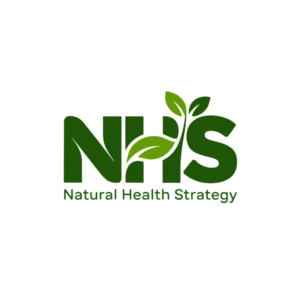Ashwagandha for breastfeeding is becoming a topic of interest for many new mothers seeking natural ways to support their health. Breastfeeding can be both rewarding and exhausting, as it often leads to fatigue, stress, and hormonal fluctuations. Many women feel overwhelmed during this period, searching for safe ways to boost their energy and manage stress.
While traditional medicine offers various solutions, natural remedies like ashwagandha might provide a gentle way to help balance both physical and emotional well-being. But can this popular herb safely support breastfeeding mothers? Let’s explore the potential benefits, risks, and expert opinions.
What Is Ashwagandha?
Ashwagandha, or Withania somnifera, serves as a powerful adaptogen, deeply rooted in Ayurvedic medicine. Adaptogens like ashwagandha help the body manage stress and restore balance. Many people turn to ashwagandha to boost energy, reduce anxiety, and enhance overall wellness.
For centuries, people have used ashwagandha to help the body cope with stress, whether physical fatigue or mental strain. Often called “Indian ginseng,” this herb revitalizes the body and supports immune function, making it a go-to solution for improving vitality.
Can Ashwagandha Be Used During Breastfeeding?
Many mothers wonder whether ashwagandha for breastfeeding is a safe option. Unfortunately, researchers have not conducted many studies specifically on ashwagandha and its safety during breastfeeding. Most existing research focuses on how ashwagandha benefits general health, stress relief, and energy improvement, but doesn’t explore its effects on lactating mothers and infants.
Some herbalists suggest that ashwagandha helps balance hormones and enhances emotional well-being for breastfeeding mothers. They believe it could ease postpartum anxiety and stabilize mood. However, without solid evidence, breastfeeding mothers need to approach this herb with caution.
While some women report positive experiences using ashwagandha while breastfeeding, you should always consult your healthcare provider first. Every mother’s body reacts differently, so professional advice will ensure you make the safest choice for you and your baby.
Benefits of Ashwagandha for New Mothers
Ashwagandha for breastfeeding mothers may offer several potential benefits, especially when dealing with the challenges of motherhood. While research is still limited, many believe this adaptogen can help in several ways:
- Stress Reduction
- Improved Sleep
- Energy and Vitality
- Hormonal Balance
- Mood Regulation
- Immune System Support
- Cognitive Function Enhancement
- Reduction of Inflammation
- Adrenal Fatigue Recovery
- Blood Sugar Regulation
For best results, combine ashwagandha with a nutrient-rich diet and regular hydration to support your energy and overall well-being.
Ashwagandha for breastfeeding mothers could provide a wide range of benefits. Many believe it supports both mental and physical health, making it easier to navigate the postpartum period. Its stress-relieving properties, combined with the potential to improve energy and sleep quality, offer holistic support for the challenges new mothers face.
By enhancing cognitive function and regulating mood, ashwagandha may help mothers stay focused and balanced throughout the day. Additionally, it can offer immune system support, promoting overall health and resilience during a time when extra energy is needed.
Safety Concerns: Should You Take Ashwagandha While Breastfeeding?

When considering ashwagandha for breastfeeding, safety becomes the most critical factor. Unfortunately, limited scientific studies have been conducted on ashwagandha use specifically for breastfeeding mothers. The herb’s general benefits for stress and energy are well-documented, but its effects on lactation and infants remain unclear.
Many experts caution against using ashwagandha while breastfeeding due to the lack of research. While some believe that ashwagandha might help with postpartum stress or hormonal balance, it’s essential to weigh the potential risks. The herb may interact with medications or impact milk production, so professional medical advice is crucial.
Always consult with a healthcare provider before adding ashwagandha to your routine, especially during breastfeeding. Your doctor can guide you on the best approach, taking into account your personal health needs and your baby’s well-being.
Key Considerations for Ashwagandha Use During Breastfeeding:
- Lack of Research: There is insufficient data on how ashwagandha affects breastfeeding women or infants, making it a cautious choice.
- Potential Hormonal Effects: Ashwagandha is known to influence hormone levels, which may impact milk production, though evidence is not conclusive.
- Medication Interactions: The herb can interact with medications, especially those for anxiety, blood pressure, or thyroid conditions.
- Individual Reactions: Each mother and infant may respond differently to herbal supplements, so personalized advice is essential.
Alternatives to Ashwagandha During Breastfeeding
If you’re exploring options beyond ashwagandha for breastfeeding, several natural alternatives can support new mothers. These alternatives are known for their safety and effectiveness in promoting overall well-being during the breastfeeding phase:
- Fenugreek: A popular herb known to boost milk production.
- Fennel: Often used to support digestion and improve lactation.
- Chamomile: Known for its calming effects, helping to reduce stress and improve sleep.
- Ginger: Supports digestion and can help manage nausea or fatigue.
- Oats: A natural galactagogue that can enhance milk supply.
Each of these alternatives offers gentle support for breastfeeding mothers, helping with milk production, stress management, and overall wellness. Before trying any new supplement, always consult with a healthcare provider to ensure it fits your needs and is safe for both you and your baby.
How to Use Ashwagandha Safely
If your healthcare provider approves ashwagandha for breastfeeding, it’s essential to know how to incorporate it safely into your daily routine. Here are some practical tips to guide you:
- Forms of Ashwagandha: You can find ashwagandha in various forms, such as powder, capsules, or tea. Choose the form that best fits your lifestyle.
- Recommended Dosage: Typical dosages vary, but starting with 300-500 mg of ashwagandha extract per day is common. Always follow your doctor’s recommendations regarding safe amounts.
- Timing: Take ashwagandha with meals to aid digestion and minimize any potential gastrointestinal discomfort. For sleep benefits, consuming it in the evening may be helpful.
- Monitor for Side Effects: Keep an eye on any unusual symptoms, such as digestive issues or changes in mood, and inform your doctor immediately if they occur.
Even when approved, it’s important to use ashwagandha cautiously, ensuring both you and your baby’s health remain the priority. Always adhere to the dosage and instructions provided by your healthcare provider.
Ashwagandha Supplements: Are They Right for Breastfeeding Mothers?
When considering ashwagandha supplements during breastfeeding, it’s crucial to understand how these products differ from the raw herb itself. Ashwagandha is available in various forms, including capsules, powders, and liquid extracts, often marketed as energy boosters, stress relievers, or sleep aids. However, the use of ashwagandha supplements while breastfeeding raises specific concerns, and understanding their composition and effects is essential for making an informed choice.
What to Know About Ashwagandha Supplements:
1. Standardized Extracts: Most supplements contain concentrated ashwagandha extracts, which means they deliver higher doses of active compounds, like withanolides. These potent compounds may interact with hormonal levels, potentially impacting lactation or hormone-sensitive conditions.
2. Quality and Purity: Not all ashwagandha supplements are created equally. Some may contain fillers, additives, or other ingredients that might not be suitable for breastfeeding mothers. It’s important to choose high-quality, third-party tested products to ensure purity and safety.
3. Dosage Concerns: While ashwagandha supplements offer convenience, they may deliver doses higher than traditional herbal preparations. Always consult with a healthcare provider to determine the safest dosage, as too much of the herb could lead to unwanted side effects or interactions.
4. Potential Benefits and Risks: Some breastfeeding mothers turn to ashwagandha supplements for help with postpartum stress, fatigue, or mood swings. However, due to limited research on how concentrated supplements affect breastfeeding infants, caution is recommended.
While ashwagandha supplements are convenient and widely available, breastfeeding mothers should prioritize safety by consulting with a healthcare professional. It’s essential to choose high-quality products and adhere to recommended dosages to minimize any potential risks to both mother and baby.
Ashwagandha in the Real Lives of Breastfeeding Mothers
Many mothers have shared their experiences with ashwagandha for breastfeeding, offering insight into how the herb has impacted their journey. While some report positive effects, like increased energy and reduced stress, others emphasize the importance of personalized medical guidance.
One mother, Emma, said she felt overwhelmed by postpartum stress and fatigue. After consulting her healthcare provider, she began taking a low dose of ashwagandha. Within a few weeks, she noticed improved energy levels and better sleep, which helped her manage the demands of caring for her newborn. Emma also found that her mood stabilized, allowing her to enjoy motherhood more fully.
Another mother, Sarah, decided to try ashwagandha after hearing about its benefits from a friend. She experienced mild improvements in mood but eventually stopped using it due to concerns about potential effects on her baby’s digestion. For Sarah, the key takeaway was that not all natural remedies work the same for every individual, and regular check-ins with her doctor were essential.
These personal stories highlight the diverse experiences breastfeeding mothers have with ashwagandha. While some find relief, others prefer exploring different natural remedies. Always work with a healthcare provider to find what’s best for your body and baby.
Final Thoughts: Striking a Balance Between Tradition and Science
Ashwagandha for breastfeeding presents potential benefits, including stress reduction, better sleep, and increased energy. However, the lack of conclusive research makes it essential to approach this herb with caution. While traditional practices in Ayurveda highlight its positive effects, modern science has yet to fully explore its safety for breastfeeding mothers and infants.
Ultimately, it’s crucial to strike a balance between traditional wisdom and scientific evidence. If you’re interested in trying ashwagandha during breastfeeding, always consult with your healthcare provider first. They can help ensure the herb aligns with your specific health needs and that you use it safely.
With the right guidance, ashwagandha might offer valuable support for some mothers, but it’s always important to prioritize both your health and your baby’s well-being.
Sources
- Limited Evidence on Safety
Ashwagandha is studied for stress relief, but its safety during breastfeeding is not well-researched. Consult your healthcare provider. (MDPI). - Potential Milk Production Effects
Some small studies suggest Ashwagandha might boost milk production, but more research is needed. (Atlas Bar). - General Caution During Breastfeeding
While Ashwagandha is generally safe for short-term use, it’s advised to avoid it while breastfeeding due to unknown risks. (NCCIH).





